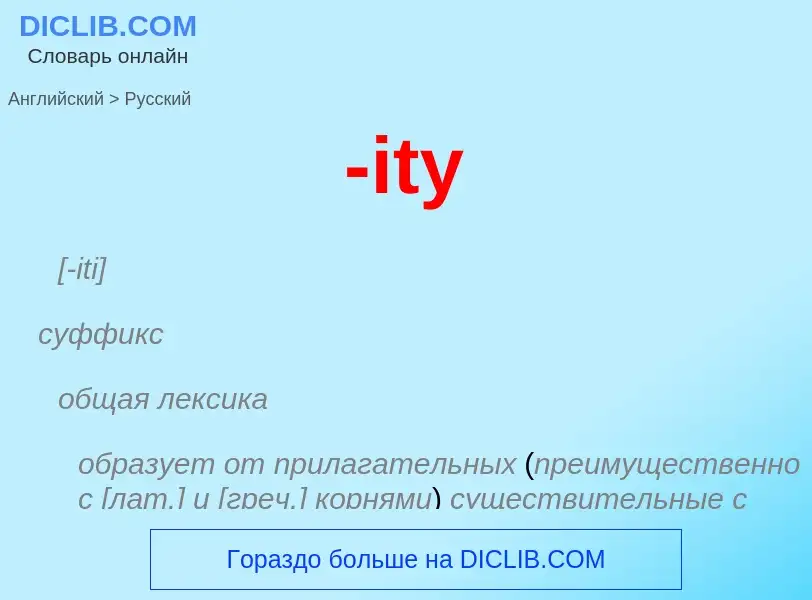Übersetzung und Analyse von Wörtern durch künstliche Intelligenz ChatGPT
Auf dieser Seite erhalten Sie eine detaillierte Analyse eines Wortes oder einer Phrase mithilfe der besten heute verfügbaren Technologie der künstlichen Intelligenz:
- wie das Wort verwendet wird
- Häufigkeit der Nutzung
- es wird häufiger in mündlicher oder schriftlicher Rede verwendet
- Wortübersetzungsoptionen
- Anwendungsbeispiele (mehrere Phrasen mit Übersetzung)
- Etymologie
-ity - Übersetzung nach russisch
[-iti]
суффикс
общая лексика
образует от прилагательных (преимущественно с [лат.] и [греч.] корнями) существительные с общим значением признака, свойства
Смотрите также
Definition
Wikipedia
In metaphysics, a universal is what particular things have in common, namely characteristics or qualities. In other words, universals are repeatable or recurrent entities that can be instantiated or exemplified by many particular things. For example, suppose there are two chairs in a room, each of which is green. These two chairs both share the quality of "chairness", as well as greenness or the quality of being green; in other words, they share a "universal". There are three major kinds of qualities or characteristics: types or kinds (e.g. mammal), properties (e.g. short, strong), and relations (e.g. father of, next to). These are all different types of universals.
Paradigmatically, universals are abstract (e.g. humanity), whereas particulars are concrete (e.g. the personhood of Socrates). However, universals are not necessarily abstract and particulars are not necessarily concrete. For example, one might hold that numbers are particular yet abstract objects. Likewise, some philosophers, such as D. M. Armstrong, consider universals to be concrete.
Most do not consider classes to be universals, although some prominent philosophers do, such as John Bigelow.

